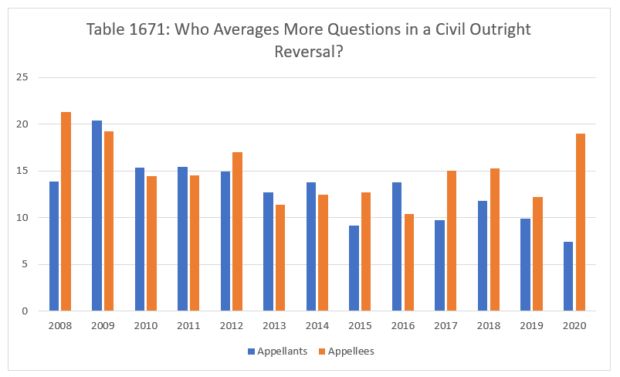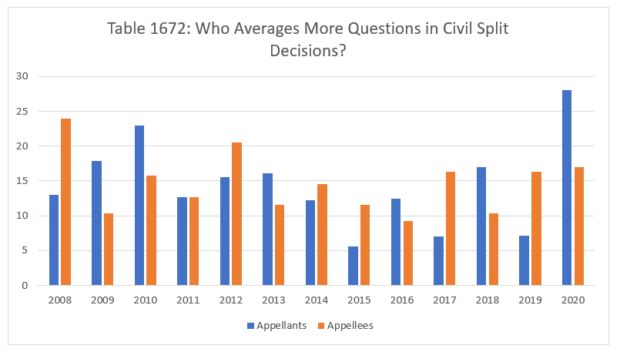Last week, we reviewed the academic literature studying oral argument analytics, and then compared the data for civil and criminal cases, both affirmances and reversals, to the outcome of those earlier studies. This week, we're digging deeper on that work. For last week's comparison, we aggregated outright reversals and split decisions: "affirmed in part, reversed in part." Now let's disaggregate - compare outright reversals to split decisions.
You'll recall that the academic literature suggests that all things being equal, the party which gets more questions is likely to lose the case. When we review the data for outright reversals in civil cases, our result is similar to the aggregated total - losing appellees average more questions in only seven of the past thirteen years (including each of the past four).

Next, we review the split decisions (although one big caveat about this data: split decisions are a small data set in individual years, so we must be cautious about sweeping generalizations). What we see is that there is a bit of a difference between the two groups of cases. Appellees in civil split decisions average more questions that appellants in only six of the past thirteen years - less than half the time.

Join us back here tomorrow and we'll review the data for Illinois' criminal cases.
The content of this article is intended to provide a general guide to the subject matter. Specialist advice should be sought about your specific circumstances.
